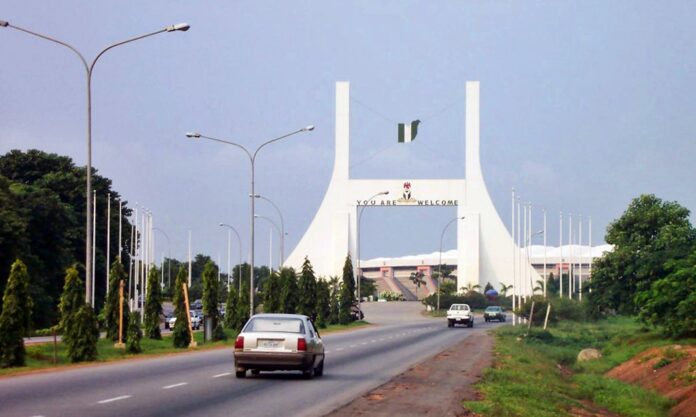The Federal Capital Territory Administration (FCTA) has announced that a new waste management system will begin on Monday, November 17, 2025, as part of its efforts to keep Abuja cleaner, more organised, and better prepared to handle the city’s growing population. The decision was reached during the FCT Executive Committee meeting chaired by the Minister of the FCT, Nyesom Wike.
The meeting, held in Abuja, brought together top officials and heads of FCTA departments responsible for sanitation, transportation, and city planning. It focused on improving the cleanliness of the city, fixing essential infrastructure, and ensuring that residents enjoy a more efficient municipal service system.
Speaking after the meeting, the Coordinator of the Abuja Municipal Management Council (AMMC), Chief Felix Amechi Obuah, said the committee had approved new contractors to handle waste collection and disposal across the FCT. He explained that the old arrangement was no longer effective and that the administration needed a stronger, more reliable system to meet the sanitation challenges of a rapidly expanding city.
According to Obuah, the new waste management plan also includes the purchase of waste treatment plants and the maintenance of supervisory utility vehicles that will monitor waste collection operations more closely. He expressed confidence that the new system would lead to a cleaner Abuja and assured residents that they would soon notice visible improvements.
“Residents should expect a cleaner city,” he said. “The new contractors have been carefully selected, and with better equipment and stricter monitoring, we are confident of better results.”
In addition to the city centre, the FCTA is turning its attention to satellite towns, which have long struggled with waste management and inadequate infrastructure. Many of these communities, especially those in the Abuja Municipal Area Council (AMAC), face challenges such as open dumps, clogged waterways, and unregulated waste disposal.
The Head of the Satellite Towns Development Department (STDD), Hon. Abdulkadir Zulkiflu, told journalists that the committee approved funds for emergency waste evacuation in the Dogon Gada community in AMAC. He said the intervention became necessary due to the growing health risks posed by uncontrolled dumps and blocked drainage channels.
Zulkiflu confirmed that the sum of ₦111,913,176 had been approved for the contract, which will cover clearing open dumps, cleaning waterways, and removing accumulated refuse from streams in the area. According to him, the clean-up will help prevent flooding and improve the living conditions of residents.
He added that the administration was committed to giving satellite communities the attention they deserve, noting that Abuja cannot be truly clean if surrounding towns are neglected.
Beyond sanitation, the FCTA meeting addressed other critical urban needs, especially transportation and traffic management. The FCT Transportation Secretary, Hon. Chinedum Elechi, announced that the committee approved funds for printing services for the Directorate of Road Transport Services (DRTS). The printing services relate to licences, permits, vehicle documents, and other materials used daily by drivers and transport operators in the capital.
Elechi also disclosed that funds have been approved for maintaining 34 old traffic lights across the city. He said the administration was aware of the frustration residents face when traffic lights malfunction, causing congestion and accidents. In addition, three new traffic lights will be installed in areas where traffic flow has increased significantly over the years.
He explained that improving traffic light infrastructure is part of the administration’s wider plan to modernise the transport system, reduce road accidents, and make urban movement easier for commuters.
The Chief of Staff to the Minister, Hon. Chidi Amadi, said the decisions taken during the meeting reflect Minister Nyesom Wike’s commitment to ensuring that Abuja becomes cleaner, better organised, and more attractive to residents, visitors, and investors.
Amadi stressed that the Minister takes waste management seriously because it has a direct effect on the appearance and hygiene of the capital city. He added that keeping Abuja clean is not only important for public health but also for the image of Nigeria, as Abuja serves as the nation’s administrative and diplomatic centre.
“The Minister is so much concerned, especially with regard to the contract concerning waste management, and he is very serious about it because it is related directly to the cleanliness of the city,” he said.
According to Amadi, the administration will closely monitor the implementation of all approved projects to make sure contractors deliver as promised. He urged residents to cooperate with government agencies by disposing of waste properly and supporting the new system.
Abuja has experienced steady population growth since it became the capital in 1991. With more residents, businesses, and vehicles entering the city each year, the demand for efficient waste management and municipal services has increased. The city has often faced challenges such as inadequate waste collection, illegal dumps, and blocked drainage systems, especially during the rainy season.
In recent years, the FCTA has made several attempts to improve waste management, including introducing private contractors and increasing supervision. However, officials said some of the arrangements were not effective enough to meet the city’s needs.
With the introduction of a new system, the administration hopes to set a higher standard for sanitation, environmental management, and public service delivery.
As the new waste management system prepares to take off on November 17, residents are watching closely to see how the changes will affect daily life. Many have complained about inconsistent waste collection, while others welcome the administration’s renewed focus on sanitation.
For now, the FCTA says it is determined to deliver a cleaner, safer, and more organised Abuja, promising that the new system and approved projects will mark a fresh start for the capital.

